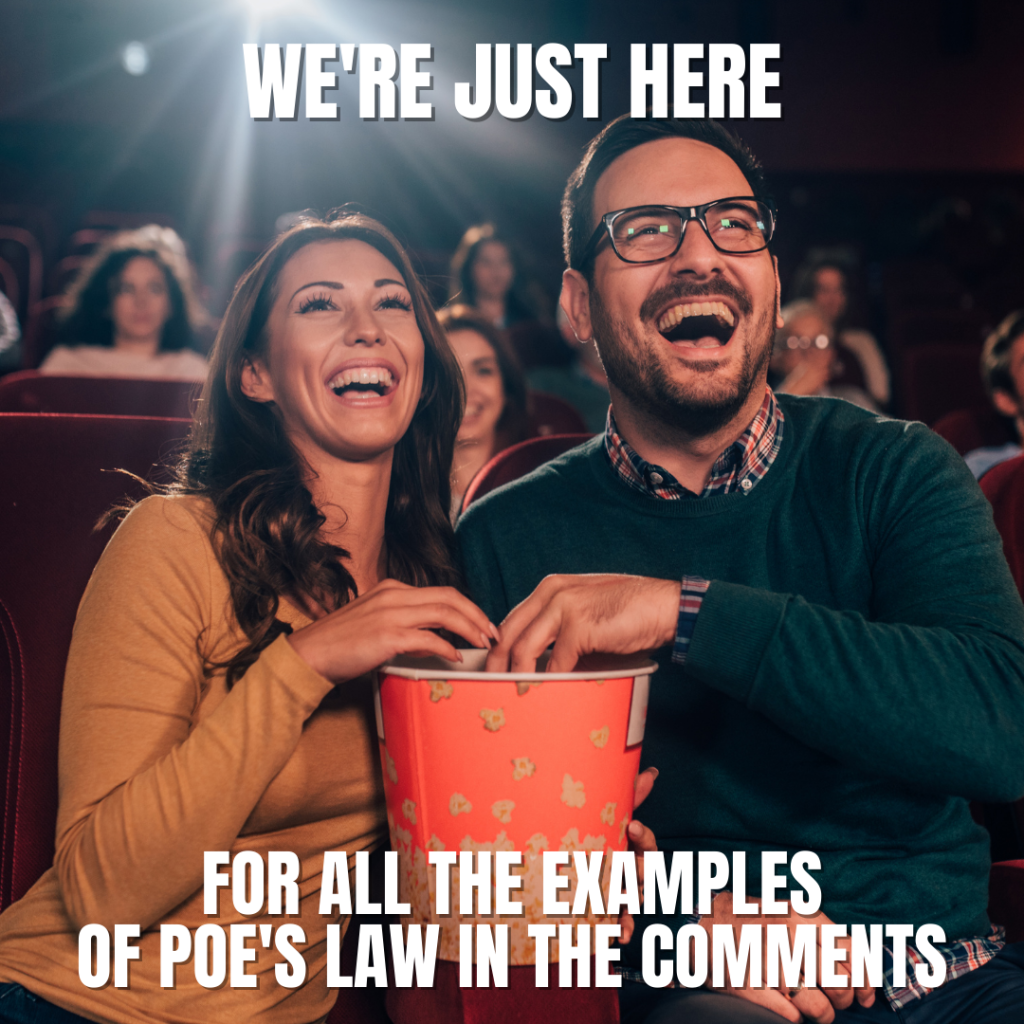
Here’s a joke:
How is universally understood humor like the Tooth Fairy?
Neither one exists.
(I didn’t say it was a good joke)
Anyone who knows me IRL recognizes that I frequently use humor. So much so I’ve earned a reputation as “the funny guy.” I lean into that a lot. It’s become my hallmark, and it has served me well throughout my career.
Humor seems harmless, but it is anything but benign. Socially speaking, it can build bridges between people, but it can be a dangerous weapon in unskilled hands. Humor is a tool like a chainsaw. In the wrong hands at the wrong time, you’re in for an exciting bus ride to work.
Here’s where being funny doesn’t help you at all, and never in the workplace: violating Poe’s Law.
I summarize this eponymous rule that without context or an understanding of intent, a person who is being sarcastic risks creating a misunderstanding that communicates the exact opposite of the intention. You think you’re being funny. In this case, not everyone gets the joke.
An example might be responding “what a fantastic idea” sarcastically to an email. Without some signal like an emoji, punctuation, a hashtag, or words to indicate you’re sarcastic, the audience might think you’re serious.
Trust me, “It was a joke” or “I was just kidding” is not a defense. The responsibility to be understood falls squarely on your shoulders. It was once put to me, thankfully not in a work setting, like this: “Stop being so deadpan sarcastic, you think you’re being smart, but most people don’t get it, and you seem like a moron.” (yeah, ouch)
Poe’s Law is most often found in the comments sections of social media. An astrophysicist might Tweet, “The earth is flat like my breakfast pancakes.”
What did they mean by that?
Maybe they were being serious.
Perhaps they were trying to be funny.
Without context, you’ll never know.
One thing we can be sure of, there will be comments.
How can this kill your career? Beyond looking like a moron in person, it is most ‘deadly’ in written correspondence because it violates a fundamental law of communications: Written text has no nuance.
So by not being transparent with your audience in what you write, you are running a risk of not getting your message understood. What you intend to say is never as important as how it is understood.
If you’re trying to be funny, make it clear that you’re being funny.
One rule that applies to writing and humor is this: know your audience and write for them.
The career you might save following this might be your own.


